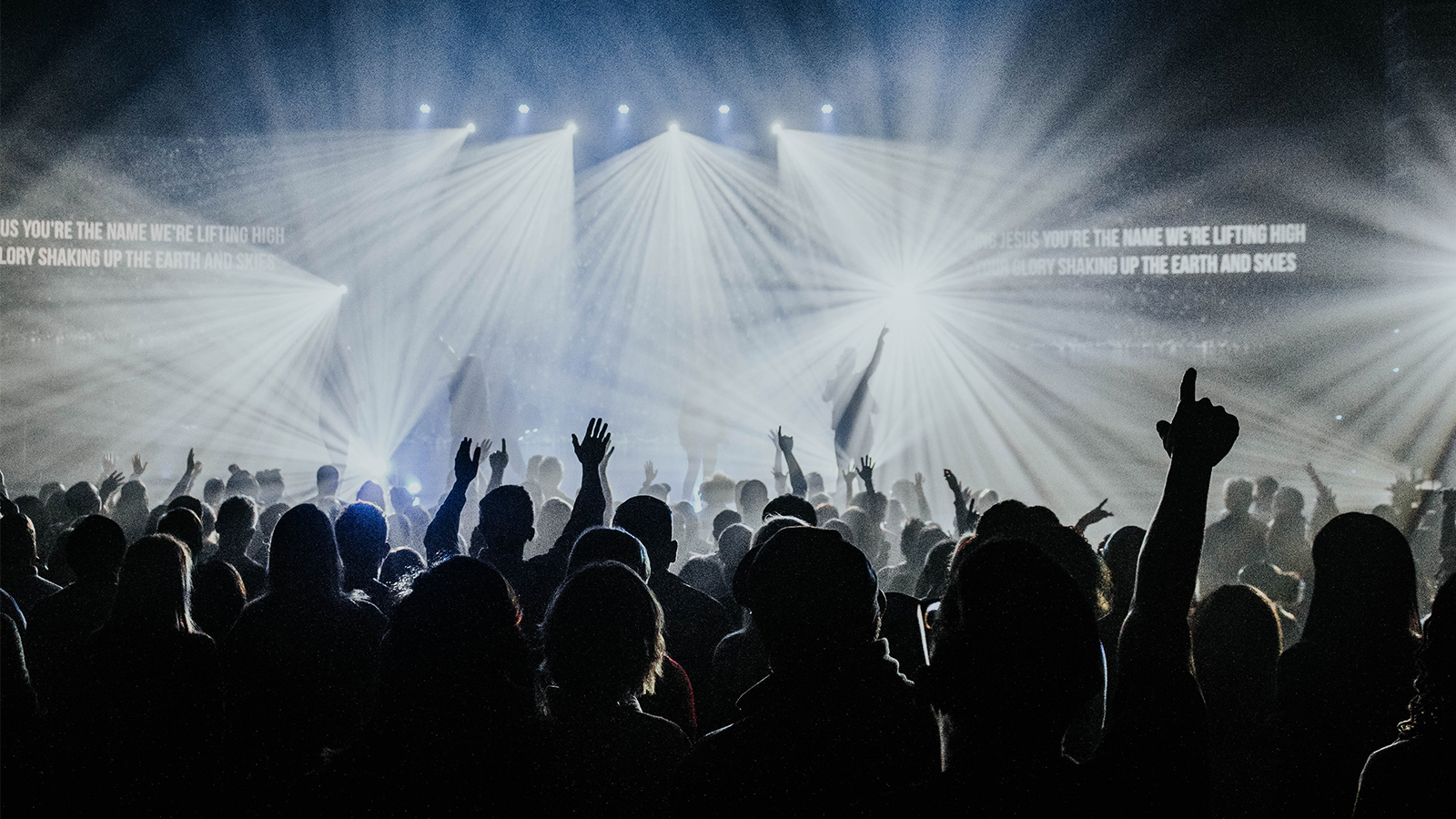
This column is part of a series on disability and faith.
(RNS) — Knowing how to help autistic people can be challenging.
Many of us have difficulty with the nuances of social communication, understanding nonverbal cues and implied meanings, making and maintaining friends, coping with sensory input (like lights, noises, and textures) and managing practical life skills.
Having autism can make being in socialized environments highly challenging, such as school, workplaces and houses of worship. I’ve heard countless stories of autistics and their family members giving up on finding a spiritual home where they feel welcome.
Though my most immediate knowledge is with Christian churches, I’ve heard similar anecdotes about Jewish and Muslim communities. Many religious groups emphasize the communal experience of religion, and they may not be sufficiently aware of the barriers present for disabled individuals.
As a Christian pastor once told me: “I don’t think it’s an intentional exclusion. It’s probably an uninformed oversight.”
Not every religious community grapples with being inclusive.
While in graduate school, I attended an Episcopal church where the people encouraged me in my ministry of preaching and education. That church became a vital support network outside of my seminary community. The Presbyterian church of my youth had caring adult leaders who provided me a space to explore deep questions of faith. Some of them were already familiar with autism and related conditions and ensured I had accommodations during youth activities.
But even at its best, participation in faith communities can be exhausting for autistic people.
Here are some of the challenges we face:
Social and communication challenges. For autistics, social interaction is a job, and participating in a religious community often feels less like respite and more like work. Making small talk in the hallway, interacting during a group Scripture study or negotiating on a service project are only a few of the routine situations that could pose considerable difficulty.
Lyric, an autistic Buddhist and writer at NeuroDivergent Rebel, said: “One thing to remember is that Autistic people often take things more literally and give and also need direct, open, and honest communication. We don’t always know how to sugar-coat things, and our honesty can be a bit much for some people, especially when we are younger.”
Another person I spoke to, an Orthodox Jew, reflected on the challenges of being autistic in Jewish settings: “The life is completely communal … you can’t be anonymous. That’s just not an option in the Orthodox community.”
Sensory needs. Houses of worship can be places of unfamiliar and sometimes overwhelming sensations, such as loud music, vivid artwork, packed crowds, harsh smells, and bright lighting. The expected styles of dress may be agitating and uncomfortable to wear for the autistic congregant. Because long periods of silence or staying still and quiet are challenging, they might have a hard time focusing during the gatherings for worship. For children or adults in education classes, posters or boldly painted walls could be distractions, rather than reinforcements.

Photo by Rachel Coyne/Unsplash/Creative Commons
Several people I talked to spoke of struggling with attention and stillness.
“The expectations around staying still can be difficult to uphold,” a neurodiverse Catholic person told me.
A Muslim agreed: “If you have any kind of attention issue, I see that being very difficult.”
On the flip side, Summer Kinard, an autistic Orthodox Christian and author of the book “Of Such Is the Kingdom: A Practical Theology of Disability,” said: “Orthodox Christianity is Christianity in 3D. It’s an embodied faith where our prayers have actions to go with them … because of this, it’s more accessible to autistic people. However, it can also be overwhelming, particularly if the church services are crowded.”
Religious ideas and thinking patterns. Many autistics think in a concrete, grounded way. They might have trouble with the manner and presentation of how religion is taught, especially if it is abstract and philosophical. For instance, autistic people often struggle with symbolic thinking, and many faith traditions are highly symbolic.
Autistics may resist expressing their thoughts and feelings in emotional language, and if a religious community is highly oriented around this, the autistic will feel out of place. Most importantly, they will feel rejected if the community’s language or stories exclude their experience of disability, or worse, interpret this difference as a condition from which to be healed or indicative of one’s spiritual standing.
The outcome of all this is that autism families and autistic individuals find themselves quitting regular religious attendance.
Amy Jacober, an author and professor of theology, in her book, “Redefining Perfect: The Interplay Between Theology and Disability,” describes working on a research project, where she asked families with a child with a disability to share their church experience.
“Overwhelmingly,” she wrote, “the experiences were negative.”
Susanne Newman, a volunteer Catholic catechist, concurs: “I’ve noticed it takes some families a while to bring their children to Mass; I imagine this is because they get weary of feeling unwelcome.” A parent of an autistic child from Susanne’s parish said: “It was difficult at the beginning. He was anxious and nervous until he adapted to the new environment.”
My cousin Kelly, whose son Bradley has autism, knows these challenges all too well and how they can be remedied. Kelly and her family had gone to church for a year but then were turned away after Bradley got his diagnosis. The church said it was not able to accommodate his needs in Sunday school.
So, they found a new church, one that had a special needs ministry.
“My story is very similar to many special needs families,” she said. “It’s really tough to find not just a welcoming church but one that is qualified to have your child in a Sunday school class environment. I wish churches realized that you touch the lives of the entire family and not just the child or adult. The community needs church and support.”
In light of all these concerns, I am commonly asked by religious leaders and lay people interested in creating a more welcoming space: “What can we do?”
The most important first step is education. Seek input from your autistic congregants and their family members. Ask them what it is that they need and what you can do for them. Offer them an opportunity to educate members of the community about what autism is and how it impacts their religious and daily life.
Some autistics prefer to worship and learn in small, private spaces. Many houses of worship have cry rooms or nursing mothers’ rooms. The current widespread availability of livestreaming can be a stepping stone for autistics to worship in an optimal physical environment. They could benefit from smaller group or one-on-one teaching and mentoring.
For example, one Muslim whose brother has autism said: “(He) started a new Quranic class with my other brother at this teacher’s house. It’s just her and her son, and he said he really liked it, and it was relaxing. Especially compared to his last Sunday School.”
With knowledge comes understanding and acceptance. Extend the care and love for others that is integral to many religious traditions to the autistics in your midst. For autistics, it can be difficult to find acceptance and inclusion among the general population. You can make your house of worship a place of refuge and renewal for them. Encourage community members to accept them for who they are and to become real friends. Embrace the understanding that autistics might come to worship services more casually dressed or with a favorite toy or diversion. Accept when they behave a little differently. Know that while their spirituality might be a little different, perhaps less emotional or less visible, it is still very real.

Amy Langston. Courtesy photo
Lastly, support autistics in their contributions. It’s unlikely they will jump at the chance to be part of the greeting team, but do create opportunities for autistics to bring their skills and talents where they will shine. Encourage them to grow and develop in their interests and abilities. When they can support the community in this way, they will feel a sense of purpose, fulfillment and connection.
For example, as one Jewish person told me: “Talmudic study is super praised. You’re given a ton of respect if you can delve into that area … I’m thinking in terms of autism, having a real focused area of interest. If that turns out to be your area of interest, then you’re going to be highly lauded … I wouldn’t be surprised if a lot of our biggest rabbis had autism.”
I have hope that as understanding and inclusion spreads, there will be more opportunities for autistics to have healthy and uplifting experiences in faith communities throughout the nation and world.
(Amy Langston has a B.A. in religious studies from Meredith College and an M.A. in religious studies from Hartford Seminary. She offers editing and speaking services related to religion and disability. Visit her website at www.amylangston.com. The views expressed here do not necessarily reflect those of Religion News Service.)
